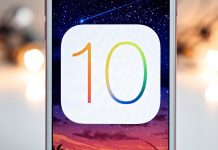 From Plug Your Book!:
From Plug Your Book!:
Apparently Apple seems to be threatening to withhold from sale e-books in its iBookstore labeled “new” editions unless they have enhanced content not available in an earlier paper editions. Some publishers may be grumbling if they’re forced to buy a new ISBN for the iBookstore edition, only to have Apple penalize them by backdating the publication date. According to a note sent to publishers this morning:
December brings some exciting changes, including new reporting tools, updated documentation, and the recent release of iTunes Producer 2.2.1. Also, starting this week, all publications will need to be assigned a publication type.
Publication Type
We would like to remind you of the Publication Type field that was introduced in iTunes Producer 2.2. To avoid availability interruptions on the iBookstore, make sure that all titles are assigned a publication type: New Release, Digital Only, or Other.
A New Release publication is defined in your contract and is bound to specific discounts. A Digital Only publication has no print equivalent or is significantly enhanced from the print edition (for example, a multimedia title). An Other publication does not meet the criteria for New Release or Digital Only (for example, an older backlist title that has a print equivalent).
More info on the site.


































How frustrating. Amazon and Apple seem equally clueless about publishing and yet each arrogantly assumes it has the right to run the industry, dictating prices, setting rules, and defining standards.
Look first at Amazon:
* Amazon calls for low prices, and yet sets up a royalty scheme that punishes authors and publishers for pricing a book below $2.99. It also discourages books of high value and quality, but low sales potential (i.e. specialized textbooks) by punishing those who price books above $9.99. Conclusion: It doesn’t seem to want either low prices or high quality. Or perhaps it’s just an excessively meddlesome control freak.
* Amazon says it’s going to insist that public domain texts meet certain quality standards, and yet it has in its collection almost half-a-million titles from a single publisher whose standards are so low, it admits that entire pages in the original will be missing in their texts and that their OCRing is so bad, readers are likely to find their many typos “annoying.” In about fifteen minutes, their programmers could make an enormous improvement in the quality of Amazon’s digital, public domain collection by stripping General Books LLC from their catalog. Yet Amazon does nothing but pick on little publishers for releasing books built around carefully proofed, decently laid-out Project Gutenberg texts. Like I said, clueless.
* Amazon claims to want every book in print to go digital, and yet its own Mobi format is worthless for anything but fiction and simple biographies. That makes about as much sense as Wilbur Wright calling for 200 people to join him on the wings of his first biplane for a trans-Atlantic flight circa 1904. Fix your ereader’s abilities, Amazon, and then call for digital books of all sorts.
Apple’s no better.
* Its implementation of ePub is so woefully non-standard, there’s a website partially dedicated to working around its strange and quirky flaws. Apple’s market value now exceeds Microsoft’s and yet it can’t get a simple ebook format right, and yet it thinks it understands publishing. Sorry, Steve Jobs, but that doesn’t make sense.
* Apple thinks publishers should flock to its platform, perhaps because it confuses music with books. And yet its ebook reader is not only no better than dozens of others on the market, it only works on their i-platforms, with no promise being made or date set when it’ll be on either Macs or PCs. Both the Kindle and the Nook are better platforms than that.
* Now Apple wants to tell publishers what content they need in order to justify a “new” label. Sorry, but in publishing, a paperback edition or a new 25th anniversary foreword is enough to constitute “new,” so a digital version, with all the labor that involves, is certainly something new. If nothing else, searchable text along with digital bookmarks and notes constitute new. I’ve got about half-a-dozen printed copies of Lord of the Rings, but I have no problem with Tolkien’s publisher calling the digital edition new. I even plan to buy a copy.
And to point fingers at Apple, look at how “new” they seem to think the same warmed-over-from-CD Beattles tunes are simply because they’re now on iTunes. What kind of new multi-media content did they add to each of those songs? None. Then why all the hype? Why do the Beetles dominate the iTunes home page? Apple is selling little, if anything, from the Beetles that we couldn’t get on CD twenty years ago.
* Finally, Apple seems to have learned nothing by the events of the last quarter century, meaning back to the hype surrounding multi-media CD-ROMs in the late 1980s. The public doesn’t want their books decked out with a lot of animation, video and audio. That’s why such ebooks don’t sell enough additional copies to be worth the added cost.
Publishers are having a hard time enough as it is. Why is Apple, flush with tens of billions in cash reserves, dumping an added burden on them? Does it want them to go bankrupt or has it just not made an effort to care? If Apple has enough time to poke and prod these titles to discover, “Oh, no animation here,” and “uh, not here either,” then why doesn’t it take the time to create illustrative multi-media themselves? Rather than dictate what publisher must do, why don’t they do it themselves. Show us that the public really does want an animated version of Pride and Prejudice to run alongside the original text. But perhaps a company that can’t even get ePub right is hardly in a position to tell anyone what he should or shouldn’t do.
[Steps down from his soap box, picks soap box up, and walks quietly away, shaking his head slowly.]
As a reader I am afraid I don’t see thing anything like Michael. Apple and Amazon, like B&N and others are independent retailers who have a right to manage their businesses in whatever way they see fit. I have no sympathy for the Publishers who have had years of warning about this new media yet sat on their arses waiting for someone else to do something first and now find themselves playing catchup. At least Amazon and Apple are taking positive strategies mostly designed to help the Reader, while the Publishers (the big 6 or 5 or whatever) are doing little to benefit the reader, only themselves, in their implementation of DRM, Agency pricing, Regional restrictions and rights restrictions. So all in all I put the Amazons and Apples etc. a hundred miles ahead of the Publishers as far as looking after the reader is concerned.
What smaller Publishers and writers should take from the criticisms laid out by Michael, allied with the failures of he big Publishers, is that this proves there is huge potential for independent Publishers and independent eRetailers. They have an opportunity to be far more flexible and reactive than the Amazons and Apple’s. They can see the mistakes being made and can capitalise on them, and from what I read hereabouts many are indeed doing this. But even more can be done, and faster.
What the Indies also need (and may already have, I don’t know) is more industry cooperation between them, like an “Indie Publishing Association” where they can market themselves more widely aggressively and offer the reading public more opportunities to find their web sites and eShops instead of the readers having to stumble around and encounter them mostly by accident.
A round of applause for Mr. Perry.